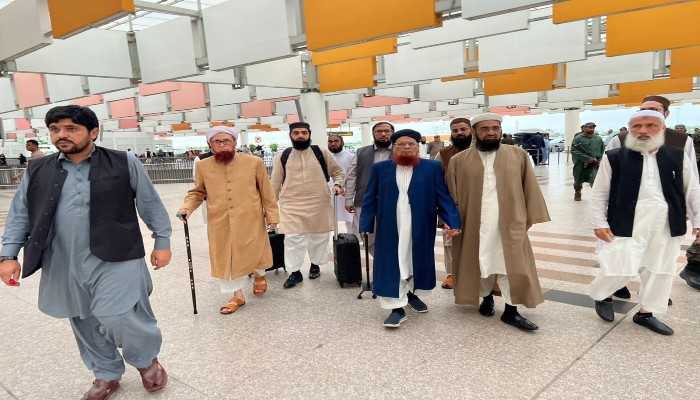NEW DELHI: The Sunday Guardian has accessed an agreement copy that is the result of the peace talks that are taking place between the Pakistan Army and the Tehreek-e-Taliban (Pakistan), and are being brokered by the Afghanistan Taliban. The said 7-page document contains points of agreements and disagreements that were discussed and arrived at by the two sides till the end of their second round of talks that took place in Kabul in May.
Among the conditions that the Pakistan Army has accepted are: removing TTP from the list of proscribed organizations in Pakistan, ensuring a similar result is achieved at the international and United Nations level, taking back of cases that have been filed by the state against the TTP cadre and the gradual demerger of Federally Administered Tribal Areas (FATA) from Khyber Pakhtunkhwa.
Pakistan Army’s demand of complete disbanding of the TTP has been rejected by the TTP after it consulted its cadre on this issue. The copy of this crucial document also gives insights into the people who are taking part in the talks from all the three sides: the TTP, the Army and the Taliban.
A senior TTP functionary, while responding to The Sunday Guardian about the details in this draft agreement copy, denied the existence of any such agreement document. As per the said document, the TTP has placed eight demands in front of the Army: release of all its cadre, withdrawal of the Army from specific areas, exclusion of the TTP from the proscribed list of organizations in Pakistan, payment for the damages caused by the operations carried out by Pakistan Army, permission be given to the TTP cadre to move freely across Pakistan, establishment of a political office of the TTP in another country, demerger of FATA from Khyber Pakhtunkhwa and the introduction of Shariah-based “Nizam-e-Adl” in the Malakand Division.
The Army’s demand, as per the agreement copy, is: TTP cadre will abide by the Constitution of Pakistan, a pan-Pakistan ceasefire that will be upheld by the TTP; TTP will not keep in contact with the Islamic State; the TTP cadre will be allowed to keep a weapon only after they get a licence for it and the complete dissolution of the TTP with its cadre residing as an “ordinary” Pakistani.
The first meeting in this matter was held at Afghanistan’s Khost province on 9 May. After this meeting, another three-day meeting was held in Kabul from 15 to 18 May, where further deliberations took place in which the main agenda was resolving the conflict over the withdrawal of the Army from the TTP strongholds and announcement of a nationwide ceasefire.
The TTP has demanded the reduction of the Pakistan Army by 60% in specific areas and replacing it with the Frontier Corps (FC), which is a paramilitary force. The TTP wants all the checkpoints to be manned by the FC and the Army personnel should be restricted to their respective cantonment.
The TTP has also demanded that no new Army cantonment will be created, but this condition will not apply in the case of the FC related infrastructure being built.
The Khost meeting later led to the formation of a tripartite committee that had members of TTP, Army and the Taliban, after which a temporary ceasefire was called. This talk also resulted in the TTP cadre being allowed to return to Pakistan as a sign of “mutual trust”. The Pakistan Army, as per the document, has given an indication that it is not averse to the TTP cadre moving in and around Pakistan.
Similarly, it has also agreed to TTP’s demand that its cadre can keep weapons without licence in its own areas, while in the rest of Pakistan they will not carry any weapon.
The Pakistan Army, during the initial meetings, refused to accept the demand of the TTP to demerge the Federally Administered Tribal Areas (FATA) from Khyber Pakhtunkhwa. However, that demand has been accepted now and it will be done in a gradual manner.
The Pakistan Army has shown flexibility on the issue of implementing the Shariah Nizam-e-Adl in the Malakand Division and neighbouring areas, while the TTP has stated that it will accept the Pakistan Constitution but will not follow the “anti-Shariah” provisions of the Constitution.
The points of contention include the TTP’s demand of the Pakistan Army removing its soldiers from the border checkpoints after 6 months, 60% reduction in the Army personnel in the area by replacing it with FC men and reduction of checkpoints in the area by 60%.
The Pakistan Army has proposed that no new military cantonment will come up in the Malakand Division, while the TTP has demanded that all the new military and FC cantonments that have come up in the last 20 years will have to be dismantled. The TTP has also demanded that all FC check posts that have come in place by disturbing the local houses, should be removed; the Army, however, has responded by stating that it will not remove them, but will “shift” them.
Significantly, among the members of the TTP who were a part of this tripartite committee was TTP commander Omar Khalid Khorasani, who was killed on 7 August, allegedly by the Pakistan Army. The Pakistan Army, as per the document, is represented by General Adnan, General Ahsan, Colonel Asim, Fakhr Alam, Brigadier Amir, Brigadier Sajid, Shahab Ali Shah, Taimur “sahib”; the Taliban are being represented by a three-member team that includes Haji Najeeb, Hafiz Yahya and Mawlana Hamas. Apart from Khorasani, the other prominent TTP members who participated in the talks were Mufti Gufran and Hilal Ghazi.
Pak Army agrees to demerge FATA, remove TTP from banned list
- Advertisement -

